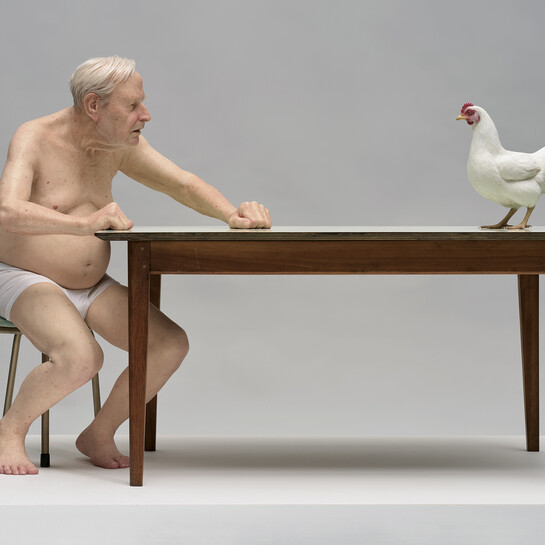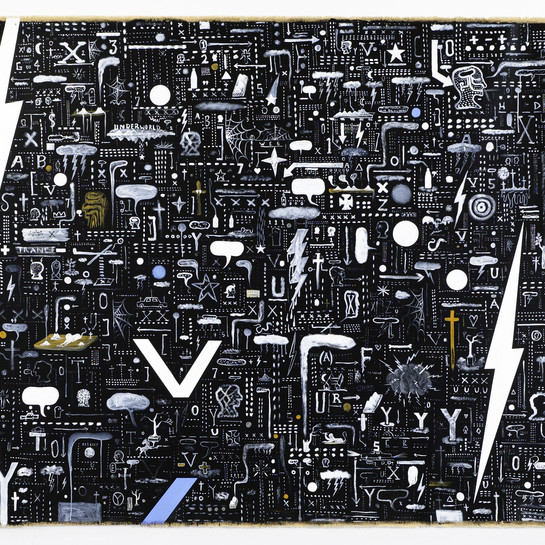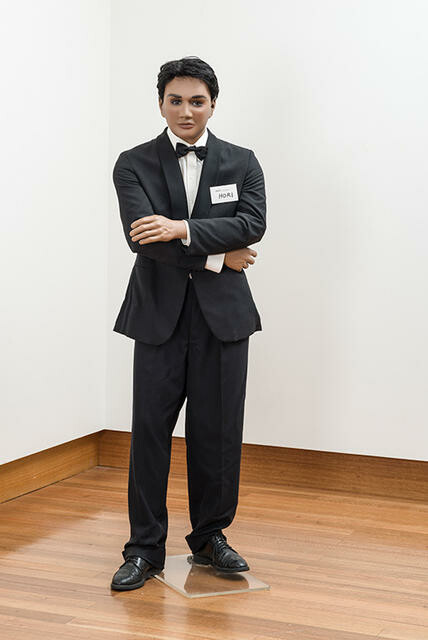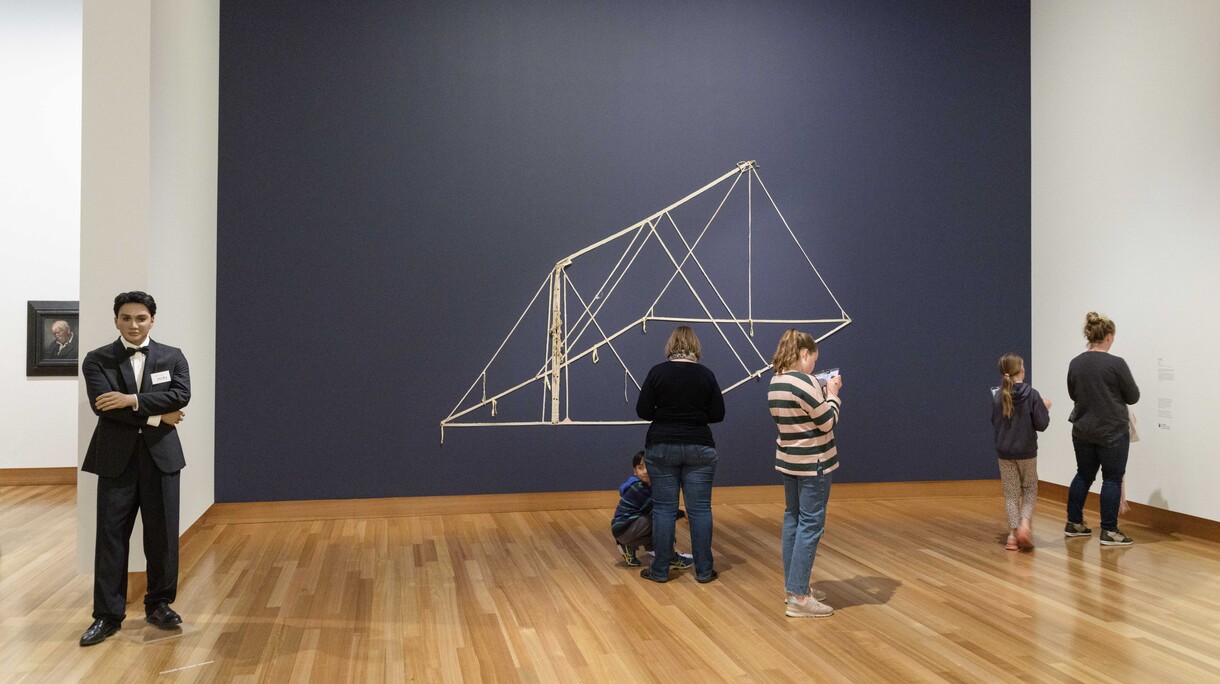Michael Parekowhai
Aotearoa New Zealand, b.1968
Ngā Ariki Rotoawe,
Ngāti Whakarongo,
Māori
Poorman, Beggarman, Thief (Poorman)
- 1996
- Fibreglass mannequin with black tie, dinner suit and name tag
- Purchased with the support of Christchurch City Council's Challenge Grant to the Christchurch Art Gallery Foundation, 2011.
- 1800 x 550 x 450mm
- 2011/016
Tags: bow ties, labels (identifying artifacts), men (male humans), people (agents), suits (main garments)
Tinker, tailor, soldier, sailor, rich man, poor man, beggar man, thief – the old children’s counting game predicted the calibre of husband a girl might marry. Michael Parekōwhai selected the three least desirable options as the titles for three Māori mannequins in dinner suits, with Poorman shown here. The corporate name badge introducing him as ‘Hori’ – a racist slur used to denigrate Māori – suggests how such stereotypes are used to jam people into prescribed roles, regardless of their abilities or potential. Don’t be fooled by his still, synthetic smoothness though; Poorman is no dummy. He’s a shrewd reminder to check our preconceptions at the door.
(Dummies & Doppelgängers, 2 November 2024 – 23 March 2025)
Exhibition History
Your Hotel Brain, 10 March 2020 – 19 September 2021
The title of Michael Parekowhai’s work comes from a children’s counting game, Tinker, Tailor, Soldier, Sailor, Rich Man, Poor Man, Beggar Man, Thief. You might have used it for counting cherry stones, or choosing whose turn it was to go next. It came with a dose of casual sexism, of course: for boys of earlier generations, it suggested what you were going to be when you grew up; for girls, who you might marry. When Parekowhai used the last three ‘occupations’ on the list to title three life-size mannequin sculptures, each depicting a well-set-up young Māori man, the implication was that there was no game of chance involved for Māori—that the social die was already cast.
Parekowhai modelled the figure of the young Māori man on his father. Poorman wears a sharp suit with a black tie, and his hair is immaculate. He looks more than a little like an entertainer from the 1960s, a member of one of the Māori showbands like the Howard Morrison Quartet or The Quin Tikis or The Diplomats. He has a name tag attached to his jacket pocket, as if he were attending some tedious function: Hello, My Name is Hori. Hori is a transliteration of Parekowhai senior’s first name, George. It’s also the name that was commonly used in the 1950s and 60s in racist jokes made by Pākehā about Māori. One way and another, this is a deeply uncomfortable work that confronts—and also confounds—stereotypes of Māori identity.
Te Wheke: Pathways Across Oceania, 30 May 2020 – 3 July 2022
“The thing about identity – it’s much more complicated than just being Māori or just being this or just being that.” — Michael Parekowhai
The title of this work recalls the old children’s rhyme that lists tinker, tailor, soldier, sailor, rich man, poor man, beggar man, thief. Chanted to suggest careers for boys, or who a girl might marry, the song removes all self-determination. The implication here is that for Māori the options are limited. Modelled on the artist’s father, Poorman’s suave appearance is undercut by the name badge reading “Hello my name is Hori” – a transliteration of George (Parekowhai’s father’s name), but also a common racist term for Māori. Parekowhai says, “I make objects that set a scene or present a stage on which other things can happen, on which the real art can take place.” Poorman operates on many levels – its visual appeal is quickly replaced by discomfort as we realise we might be looking at the subject of racism dressed up in a dinner suit.



